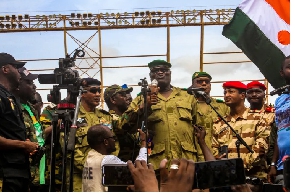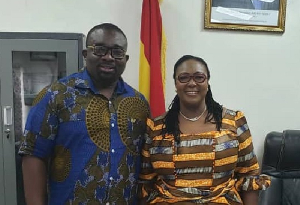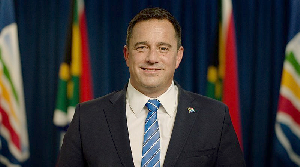Opinions of Friday, 11 August 2023
Columnist: Philip Danso Appiagyei
Military takeover is not option
A call for a military coup in present-day Ghana, whether direct or tacit, is rash. If we did a cost-benefit analysis, we would realise that democracy, regardless of its defects, is preferable to a military junta.
There is no doubt that democracy is expensive but a military regime is far more expensive. We should never discount the misrule that usually comes with military regimes. We have come a long way to let anyone send us back to the dark ages.
If we think back to the days when Ghana was mired in coup d’etats and counter-coups, we will find out that military takeovers rather compounded our problems. Military rule is retrogressive.
The powers that military rulers arrogate to themselves cannot be controlled, checked, or challenged. We are partly blamable for whatever problems we face today since we elected the government. Thomas Jefferson says “The government you elect is the government you deserve”.
If the people mistakenly elect a bad government, they should be given the chance to correct their mistake by voting the “bad government” out of office. Besides, if we see the current government as a complete failure or a big disappointment, we can pressure our political representatives in the legislature to impeach the president.
Democracy has an inbuilt mechanism, a kind of self-correcting device, to check corruption of powers, arbitrariness, and inept political leadership.
Our failure or stubborn refusal to use such devices (i.e., constitutionalism, rule of law, parliamentary oversight, judicial oversight or judicial review, public opinion, and the watchdog role of the media and civil society) does excuse any call for a military takeover.
I venture to say that our problem is not necessarily the bad government that we complain that we have. Our real problems are passivism, indifference, and extreme partisanship. On the one hand, passivism and indifference have weakened our resolve to stand up to high-profile government officials who are responsible for the mess that we find ourselves in.
Extreme partisanship, on the other hand, has blinded us to the truth about the failings of the Akufo-Addo government of today, the erstwhile Mahama government, and all other previous governments. This largely explains why President Akufo-Addo seems unmoved by public outcry over his poor economic performance.
It, also, explains why ex-president Mahama despite his humiliating defeat in the 2012 elections and public outcry over his poor economic performance- still hopes to stage a comeback in the 2024 elections. It is, therefore, not surprising then that we suffer from constant illnesses such as corruption, abuse of incumbency, and executive dominance.
We have sat aloof and allowed the presidency and the cabinet to weaponize parliament by getting parliament to rubber stamp every course of action that they take. We had better heed the call to “active citizens” and “not spectators”.
Granted, the economy has melted down under the Akufo-Addo government, but any argument that glamourizes coup d’etats is out of place. Granted, our elected political leaders have not been good trustees over the years, but military rulers are usurpers who do not answer the public. Military dictators are laws unto themselves.
Today, we still enjoy the right to change our government through elections, criticize the government or challenge the government in a court of law, but we will surely lose any such right under a military junta. We must endeavour to pick the lesser of two evils: a “stubborn democratic government” is better than a “military government”. A “stubborn democratic government” can be voted out or unseated by the opposition party in elections but a “military government” clings to power and destabilizes the state.
Democracy is the only game in town and as such we should be wary of our remarks lest we incite the public to revolt against the government. We should be wary of our comments lest we invite the military to intervene in politics or call into question the integrity and professionalism of our military establishment. Our soldiers are well-trained and disciplined professionals who have chosen to steer clear of politics since the dawn of the Fourth Republic of Ghana.
Let’s speak up as a people when the government mismanages the affairs of the state! Let’s guard against any breach of the peace and political stability that we enjoy in Ghana!
Long Live, Ghana!













